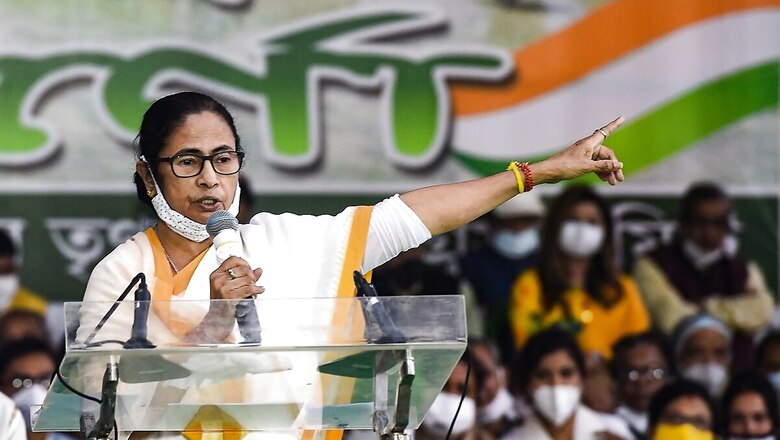
views
While leading the Trinamool Congress to its most spectacular electoral victory, Mamata Banerjee joined a dubious league of chief ministers losing polls when their respective parties won Assembly elections.
Mamata is in a hall of ‘defeat in victory’ of sorts that includes Morarji Desai, Tribhuvan Narain Singh, Prem Kumar Dhumal and Biju Patnaik. However, each had a peculiar situation or circumstances. In some ways, Mamata Banerjee is the only one to have lost an Assembly seat when her party went on to win a record 213 out of 292 seats that went to polls in Bengal.
In 1970, Tribhuvan Narain Singh was the incumbent Uttar Pradesh Chief Minister who failed to win a by-election. Singh who was heading a Sanyukta Vikas Dal, consisting of Congress [Organisation], Swatantra Party, Bharatiya Jan Sangh and the Bharatiya Kranti Dal, had to resign immediately.
In December 2017, Prem Kumar Dhumal was set to become the chief minister of Himachal Pradesh when the BJP edged out Congress’ Virbhadra Singh regime. The BJP won but Dhumal failed to get elected. However, unlike Mamata Banerjee, he was not an incumbent chief minister. Jai Ram Thakur was subsequently sworn in as the 14th chief minister of Himachal Pradesh
In 1971, Biju Patnaik had formed a breakaway Utkal Congress and was set to become the Odisha chief minister but the legendary politician lost from four Assembly constituencies and one Lok Sabha constituency. The alliance government picked Biswanath Das as the chief minister.
Morarji Desai who rose to become the Prime Minister of India had lost from Bombay (now Mumbai) in the 1952 Assembly election. Desai, however, was re-elected the leader of the Congress Legislature Party to return as the the Chief Minister of Bombay. Within six months’ time, he won a by-election from another constituency. Desai, at the time of his defeat, was holding the home portfolio in the B.G. Kher government. Despite losing the Bulsar Assembly seat, Desai was chosen by the Congress to succeed Kher, reportedly on the instructions of Jawaharlal Nehru. Desai’s tenure was, however, marred by the incident of police firing on Samyukta Maharashtra activists protesting against the Congress Party’s decision to keep Bombay city out of proposed Maharashtra in which over 100 activists were killed. Desai had reportedly turned down Prime Minister Nehru’s suggestion to deploy the Army to pre-empt the riotous situation.
As per the Article 164(4) of the Indian Constitution, “A Minister who for any period of six consecutive months is not a member of the Legislature of the State shall at the expiration of that period cease to be a Minister.” It means that any person can become minister in a state for a maximum period of six months even if he/she is not a member of the legislature. But if he/she is not elected to the House within that period, he will cease to be a minister after six months from the date of his appointment.
Mamata Banerjee can take this route.
Read all the Latest News, Breaking News and Coronavirus News here. Follow us on Facebook, Twitter and Telegram.



















Comments
0 comment